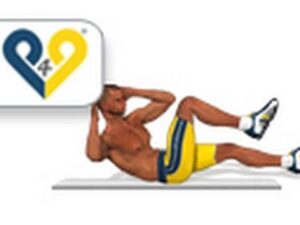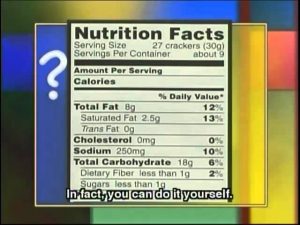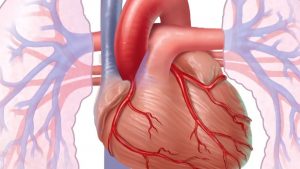Insulin is one of the most common medications that people with type 2 diabetes take… yet, many people feel like getting on insulin means they’ve failed. Learn the basics of why insulin can help control blood sugar, some common misunderstandings about insulin and what you should always have with you if you start insulin. Transcript: Many people with type 2 feel that if they start taking insulin, it’s the sign that their diabetes has gotten really bad and they’re doomed. This couldn’t be further from the truth, but part of the reason that people feel that way is because of how insulin was used in the past. It used to be that insulin was given as a last resort, to people whose diabetes had progressed to the point where complications were either already present or almost inevitable. That’s pretty much the opposite of how insulin should be used. Today, physicians use insulin more proactively, as a way to lower your A1c before it gets too high and therefore PREVENT complications. Insulin is one of the most effective ways to control your blood glucose and is one of only a few medications in the world that is completely natural. You can take insulin that is exactly the same as the insulin that your body produces naturally. This means you don’t have to worry about any allergies or side effects. The only concerns about insulin relate to the dosing of it. If you don’t take enough insulin, your blood glucose levels and your A1c will be too high and if you take too much insulin, your blood glucose may go too low. However, low blood sugar is not very common for people with type 2 diabetes who are starting insulin. A recent study showed that on average, there was one event of hypoglycemia for every ten years that someone was on insulin. Working with your physician and learning how to adjust your own insulin doses will prevent most of these problems, but you should always carry some fast-acting glucose (like glucose tablets or sweet tarts) with you at all times if you’re on insulin, just in case you go low. Another concern that people have is about taking an insulin ‘shot’. This is an area that has changed a lot over the last decade, as there are now new ways to take insulin, such as insulin pens. Taking insulin in today’s world should not be associated with any discomfort. Last, some people may be concerned that being on insulin will make them gain weight. The data on this is pretty clear—on average, people on insulin will gain roughly 3.5 pounds over 6 years. This is a relatively small amount of weight over a fairly long period of time, and in terms of your diabetes health, the better blood sugar control is well worth it. And that’s what you need to know about insulin—thanks for watching! The medical information in our videos is provided as an information resource only. It is not to be used or relied on for any diagnostic or treatment purposes. These videos do not create any patient-physician relationship, and should not be used as a substitute for professional medical advice, diagnosis and treatment. Always seek the advice of your physician or other qualified health provider for any questions you may have regarding a medical condition. DWTK does not endorse any specific test, treatment, medication or procedure mentioned in these videos. For more information sign up for our free email program: https://diabeteswhattoknow.com/sign-up/ All content of this YouTube channel is owned by What To Know, LLC. and is protected by worldwide copyright laws. You may download content only for your personal use (i.e., for non-commercial purposes) but no modification or further reproduction of the content is permitted. The content may otherwise not be copied or used in any way. ©2020 Diabetes What to Know

Type 2 Diabetes Treatments: Insulin
- Post author:
- Post published:May 26, 2021
- Post comments:0 Comments
You Might Also Like

Single Arm Lying Tricep Extension

Dumbbell Supinated Press – HASfit Shoulder Exercise Demonstration – Anterior Deltoid Exercises

Nutrition Tips : Benefits of Taking a Vitamin B Complex

Advantages Of Yoga Video – 6

What is Rheumatic Heart Disease (RHD)

??♂️ #1 Exercise For Preventing Erectile Dysfunction & Improving Your Performance In The Bedroom

Enzymes Video – 2

Tuberculosis, Causes, Signs and Symptoms, Diagnosis and Treatment.

Learn how to say this word: “Anabolism”

Equestrian Video – 3

How your adrenal hormones affect thyroid and sex hormones

Hepatology Video – 1

18 Things You Should Know About Genetics

Body Relaxation Exercise

Pregnancy Diet: 5 Tips For Proper Prenatal Nutrition

HMG CoA Reductase Inhibitors (Statins) | MedMaster | Pharmacology for Nursing Students

Donkey Kicks-4

Female Hormone Panel | HealthE Coaching

Gynecomastia Treatment – Is There Any Medical Treatment?

How long does it take to get pregnant with metformin? – Dr. Teena S Thomas

Pediatric Physiotherapy Video – 5

HGH, Growth Hormones & Plant Hormones Video – 40

Crunch elbow towards knee – alternated

nutrition basics: why food matters 640×480

15 Foods Rich in Vitamin B12 – Foods With Vitamin B12

Crunches-6

Telmisartan and Amlodipine Will Treat High Blood Pressure – Overview

Rear Deltoid-3

Mayo Clinic Minute: What is heart disease?

Anatomy of the Lungs
asvideo

What Causes Hair Loss | What Causes Alopecia Areata | Cure To Baldness

Ronnie Coleman’s Seated Cable Row | Back Exercise #3

McKenzie Press-up (Back Extension Exercise) -HD

Muscle Building Workout & Squats Video – 5

How to Get Toned Abs (IN ANY LIGHTING!)

What makes tuberculosis (TB) the world’s most infectious killer? – Melvin Sanicas

Barbell Bench Press-7

Latissimus Dorsi Bent Over Row-5

World No.1 Whey Protein 100% |Rubal Dhankar|

3 Things You Should Do Before Going to the Gym!

